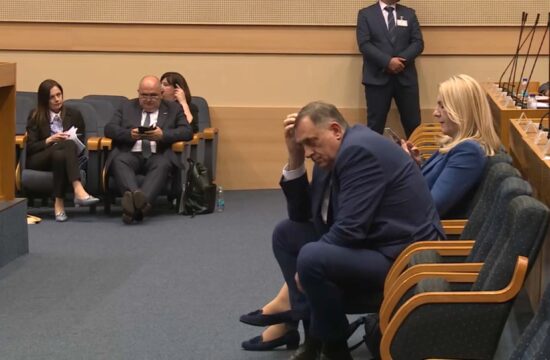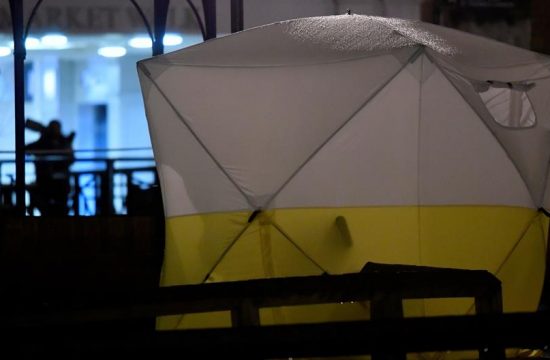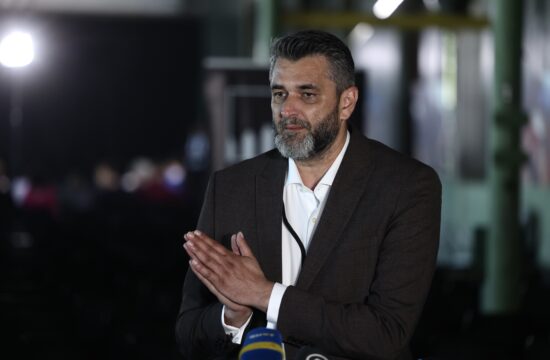Blocking the implementation of the election results in Bosnia and Herzegovina and keeping the future of this country a hostage is not an option, said top international institutions in Bosnia commenting on the recent statements of the Croat leader Dragan Covic.
“It is on Bosnia and Herzegovina's institutions at all levels to find a solution that would enable the uninterrupted and swift formation of the new government. No political party should be blocking the implementation of the election results,” said the Office of the High Representative (OHR), the international community's authority overseeing the implementation of the Dayton Peace Agreement (DPA) which ended the 1992-95 armed conflict in Bosnia.
Dragan Covic, the leader of the Croat Democratic Union (HDZ BiH) and the outgoing Croat member of Bosnia's tripartite Presidency, earlier told media the conditions to implement the election results have not been met as the Election Law changes have not been adopted.
In an interview for a Bosnian TV station, Covic said he was “deeply convinced the Constitutional Court's decision which tells that the Parliament must conduct the changes to the Law election, which would enable legitimate representation at all levels, must be implemented.”
Covic referred to the ruling in a case submitted by Bosnian Croat politician Bozo Ljubic, who had argued that the Croat influence in cantons with a majority Bosniak population was unfairly diminished in the selection of delegates and that it allows Bosniaks to elect the Croat member of the Presidency.
“The solution has to solve the City of Mostar, the House of Peoples and the Presidency of Bosnia and Herzegovina. That is our task now. It is not possible to work partially only to meet someone's needs, and that would mean the fight for positions,” Covic said, adding that a solution provided by institutions that are not in charge of this matter would not be acceptable.
Bosnia is composed of two semi-autonomous entities, the Serb-dominated Republika Srpska (RS) and Federation (FBiH) shared by the Bosniaks and Croats. The state Presidency consists of three members, each representing one of the three constituent ethnic groups, with the Serb member elected in RS and the Bosniak and the Croat members elected in FBiH.
However, since there are many more Bosniaks than Croats in the Federation, Bosnian Croat representatives, particularly those from the HDZ BiH, have been complaining that Bosniaks are able to elect the Bosnian Croat Presidency member. They said that this has already happened twice before and that it happened again in the General Election on October 7, with the election of Zeljko Komsic, Covic’s political opponent and leader of the Democratic Front (DF).
Zeljko Komic won more of the Bosniak votes than the Bosniak candidate did, so let him represent Bosniaks then, Dragan Covic told Nasa TV. Also, he said it was “dangerous” when the international circles tell what is constitutional in Bosnia and what is not.
“This can only be done by the Constitutional Court of Bosnia and Herzegovina,” said Covic as a response to the statements by the international institutions in the country concerning current, post-election state of affairs in Bosnia.
The US Embassy in Bosnia and Herzegovina objected any situation in which the formation of authorities would be blocked and urged the political actors not to block the country.
“Although it is necessary to solve the problems in the Election Law of Bosnia and Herzegovina, keeping the future of this country a hostage for the sake of achieving the political gain is irresponsible and unfair towards the citizens of Bosnia and Herzegovina, including the Croats in Bosnia and Herzegovina,” said the Embassy pointing out that political parties should work in the spirit of compromise.
“It is still of the utmost importance for the partners in Bosnia and Herzegovina to work on seeking the solutions in line with the European and democratic norms, which guarantee both the political equality of the three constituent peoples in Bosnia and Herzegovina as well as the equality of all citizens of Bosnia and Herzegovina, including those who do not identify as members of one of the constituent peoples,” the Embassy told N1.
On Tuesday, the umbrella organisation of the Croat parties in Bosnia, the Croat People's Assembly (HNS), chaired by Covic, decided the conditions for the formation of the government following the October 7 general election have not been met because the voting took place in line with an unconstitutional election law.






